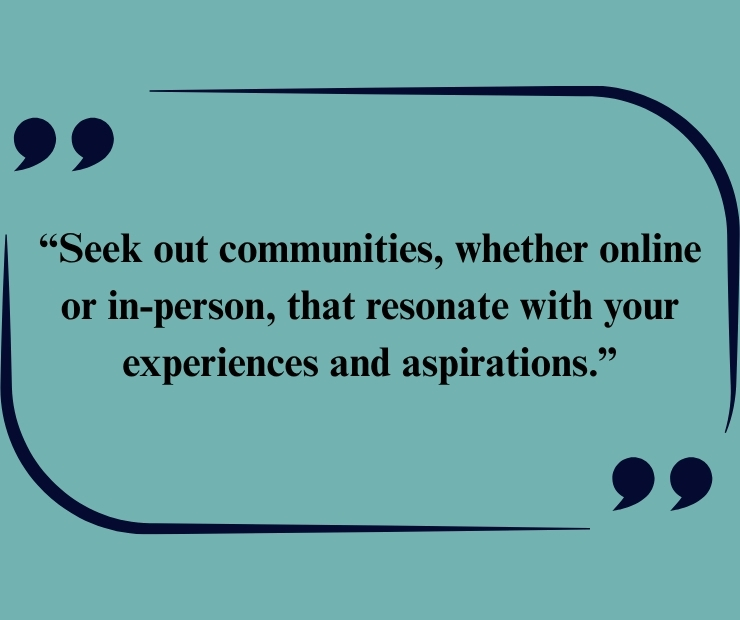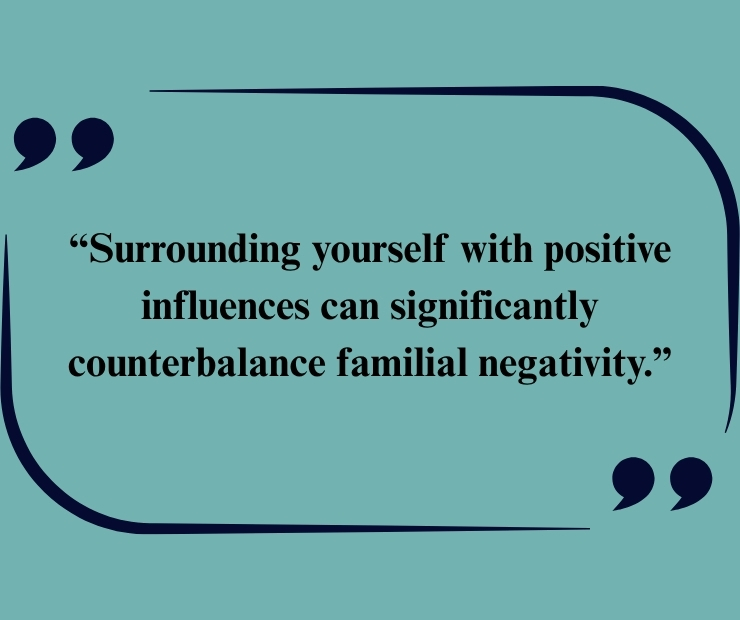The harsh reality is that not every family member will provide the support you deserve, leaving you feeling isolated and misunderstood. Learning how to deal with unsupportive family is essential for maintaining your emotional health and pursuing your goals.
It’s a common misconception that family should always be your biggest supporters, but for many, that isn’t the case. This article offers practical advice on how to cope with criticism and find strength in your own identity. Equip yourself with the tools needed to rise above familial challenges and thrive.
Read More: 20+ Heart Touching 1st Anniversary Wishes For Husband
Methods: How To Deal With Unsupportive Family
The complexities of family dynamics can be challenging, especially when faced with unsupportive relatives. To effectively manage this situation, focus on establishing healthy boundaries. Clearly articulate your needs and limits, ensuring that those around you understand what is acceptable behavior.
This proactive approach not only protects your emotional well-being but also creates a space where you feel empowered to pursue your goals without undue influence from negativity.
- Find Your Support
- Deal With Unsupportive Family by Keeping it to Yourself
- Realize You Can Do it Without Your Family’s Support
- Talk To Them About How It Makes You Feel
- Evaluate Your Expectations of an Unsupportive Family
- Set Boundaries
Find Your Support

Finding your support is crucial when navigating the complexities of an unsupportive family environment. Surrounding yourself with like-minded individuals can create a sanctuary where you feel understood and valued. Seek out communities, whether online or in-person, that resonate with your experiences and aspirations. These groups not only provide emotional backing but also offer diverse perspectives that enrich your journey.
Another effective method to manage an unsupportive family is to establish healthy boundaries. Clearly defining what is acceptable in your interactions can protect your emotional well-being. When you communicate your needs assertively, it empowers you to engage with your family on your terms, minimizing their negative impact.
Deal With Unsupportive Family by Keeping it to Yourself
One effective method to manage this situation is to keep your aspirations and struggles to yourself. By choosing to maintain a level of privacy, you create a protective barrier around your dreams and goals. This approach not only shields you from negative commentary but also allows you to cultivate a sense of independence.
To keep your thoughts private, focus on building a supportive network outside your family. Surrounding yourself with friends or mentors who uplift and inspire can provide the encouragement you need to thrive. Engaging in communities that align with your interests can also offer fresh perspectives and new opportunities.
Realize You Can Do it Without Your Family’s Support

When you find yourself navigating life without the support of your family, it’s crucial to embrace the power within you. You possess an innate resilience that can propel you forward, regardless of external validation. One effective method to manage an unsupportive family is to cultivate a strong sense of self-awareness.
This involves recognizing your strengths and acknowledging your aspirations, independent of their opinions. By focusing on your personal goals, you can build a clearer path that aligns with your values and desires. Another powerful strategy is to seek out alternative sources of support. Surround yourself with friends, mentors, or community groups that uplift and inspire you.
Talk To Them About How It Makes You Feel
Expressing your feelings to unsupportive family members can be a pivotal step in navigating the complexities of your relationships. When you open up about how their actions impact you, it creates a space for vulnerability and honesty. This dialogue not only helps them understand your perspective but also empowers you to articulate your needs clearly. By sharing your emotions, you invite them to see beyond their viewpoints and potentially foster empathy.
As you engage in these conversations, remember that your feelings are valid and deserve acknowledgment. Using “I” statements can help communicate your emotions without sounding accusatory, which might lead to defensiveness. Phrases like “I feel overlooked when my achievements aren’t recognized” can resonate deeply, prompting a more constructive response.
Here are a things to remember while speaking with an unsupportive family:
- Have an Arrangement. Understand what you are venturing out in front of time, as well as when a great time is discussed with them.
- Keep away from A showdown. This is only a chance for you to impart and assess how they answer.
- Regard Their Input. Regarding their criticism, it doesn’t mean you concur with it. Simply grasp that even though you are attempting to convey your sentiments, it doesn’t mean they need to oblige your solicitation or concur with you. Be ready for this chance.
Evaluate Your Expectations of an Unsupportive Family

Recognizing that your family may not provide the validation or encouragement you seek allows you to adjust your outlook and focus on self-empowerment. Accepting this reality doesn’t mean relinquishing hope; rather, it opens the door to exploring methods to manage with an unsupportive family. By redefining what support looks like for you, you can cultivate a sense of independence that thrives outside their approval.
Consider forming a network of friends or mentors who share your values and aspirations. Surrounding yourself with positive influences can significantly counterbalance familial negativity. Engage in activities that reinforce your self-worth and foster personal growth.
Set Boundaries
Setting boundaries is an essential skill when navigating relationships with unsupportive family members. By clearly defining what is acceptable and what isn’t, you create a protective space for your emotional well-being. This isn’t about shutting people out; it’s about ensuring that your needs are respected.
When you communicate your boundaries calmly and assertively, you demonstrate self-respect, which can sometimes inspire others to reflect on their behavior. Utilizing methods to manage with an unsupportive family becomes easier when you practice consistency. Each time you reinforce your limits, you solidify your position and help others understand the importance of those boundaries.
Conclusion
How to deal with unsupportive family dynamics requires strength and self-awareness. By recognizing your worth and setting healthy boundaries, you can create a more positive environment for yourself. Focus on building connections outside your family that nurture your ambitions and provide encouragement.
As you cultivate self-compassion and embrace personal growth, you will find it easier to navigate these challenging relationships. Ultimately, your journey towards fulfillment starts with you; commit to surrounding yourself with positivity and support.






